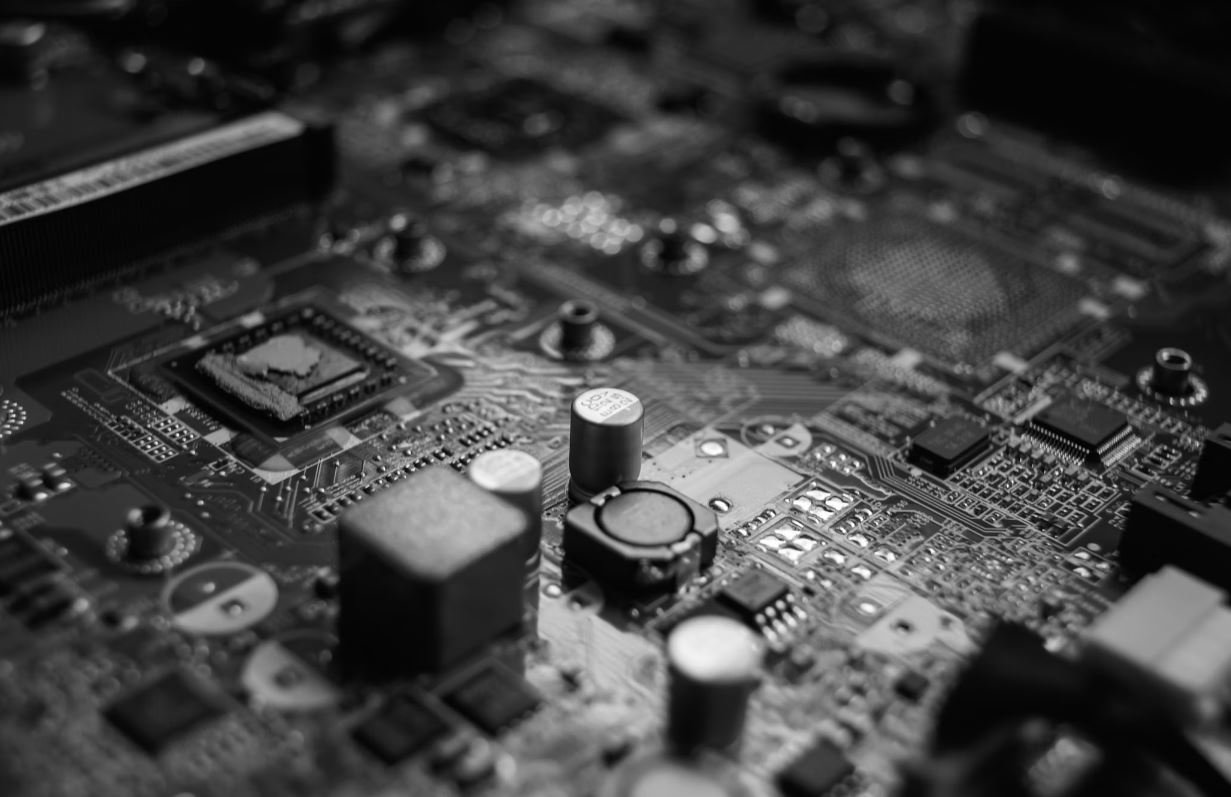What Are Artificial Intelligence Products
Artificial intelligence (AI) has revolutionized many industries and fields, with the development of AI products being a significant outcome. AI products leverage machine learning algorithms, neural networks, and other techniques to mimic human intelligence and perform tasks that would typically require human intervention. This article explores the concept of AI products, their key features, and their impact on various sectors.
Key Takeaways:
- Artificial intelligence products employ advanced algorithms to imitate human intelligence.
- They provide automated solutions for complex tasks, optimizing efficiency and accuracy.
- AI products have applications in diverse industries, such as healthcare, finance, and retail.
- These products can range from virtual assistants to sophisticated analytical tools.
- As AI technology advances, the integration of AI products is expected to increase.
Understanding AI Products
AI products refer to software or hardware systems that utilize artificial intelligence techniques to perform various tasks. These products leverage advanced algorithms, big data, and powerful computing capabilities to analyze, interpret, and learn from vast amounts of information. By mimicking human intelligence, AI products can provide valuable insights, automate complex processes, and improve decision-making.
AI products encompass a wide range of applications, including virtual assistants, autonomous vehicles, image recognition software, fraud detection systems, and personalized recommendation engines. These products can be categorized into two main types: general AI products and narrow AI products. While general AI aims to replicate human-level intelligence across different domains, narrow AI focuses on specific tasks or functions.
AI products have rapidly evolved, enabling machines to perform tasks with greater speed and accuracy, transforming industries and reshaping work processes.
Applications of AI Products
The adoption of AI products has been widespread across various industries due to their potential to enhance productivity and efficiency. Here are some notable examples:
1. Healthcare
In healthcare, AI products are revolutionizing diagnosis, drug discovery, and personalized medicine. They enable faster analysis of medical images, identification of patterns in patient data, and predictive modeling for disease diagnosis and treatment.
2. Finance
AI products in the finance industry assist in fraud detection, algorithmic trading, risk assessment, and customer service. These products analyze vast amounts of financial data to identify patterns, perform real-time monitoring, and provide personalized financial recommendations.
3. Retail
In the retail sector, AI products are used for inventory management, demand forecasting, and customer experience optimization. They utilize data analytics to identify trends, personalize marketing strategies, and enhance the overall shopping experience.
Impact of AI Products
The integration of AI products has had a profound impact on various sectors:
- Improved Efficiency: AI products automate repetitive tasks, reducing the dependency on human intervention and increasing operational efficiency.
- Enhanced Accuracy: With advanced algorithms, AI products offer superior accuracy in tasks such as data analysis, risk assessment, and predictive modeling.
- Personalization: AI products can provide personalized experiences and recommendations based on user preferences and behavior.
- Cost Reduction: By streamlining processes and eliminating errors, AI products help businesses reduce costs and optimize resource allocation.
- Job Transformation: The adoption of AI products may reshape job roles, requiring professionals to adapt to new technological advancements and focus on higher-value tasks.
As AI products continue to advance, their impact on industries and society is expected to expand further, driving innovation and unlocking new possibilities.
AI Product Development Process
Developing AI products involves a comprehensive process that typically includes the following steps:
- Problem Identification: Defining the specific problem or task the AI product should address.
- Data Collection: Gathering relevant and diverse data to train the AI model.
- Preprocessing: Cleaning and organizing the collected data to ensure its quality and suitability for analysis.
- Algorithm Selection: Choosing the appropriate algorithms and techniques to process the data and achieve the desired outcome.
- Training and Testing: Training the AI model using the collected data and evaluating its performance through rigorous testing.
- Deployment: Integrating the trained model into a practical application or system.
- Monitoring and Maintenance: Continuously monitoring the AI product’s performance, making improvements, and addressing any issues that arise.
Conclusion
In conclusion, AI products have emerged as powerful tools that utilize artificial intelligence techniques to automate processes, improve efficiency, and enhance decision-making across various industries. With their wide range of applications and ongoing advancements, AI products have the potential to revolutionize numerous sectors and drive innovation. As organizations continue to harness the power of AI, the integration of AI products is expected to become increasingly prevalent in everyday life, transforming the way we live and work.

Common Misconceptions
1. Artificial Intelligence (AI) equals robots with human-like abilities
One common misconception is that AI refers to robots that possess advanced human-like cognitive abilities and emotions. However, AI is not limited to physical embodiments like robots.
- AI includes software systems and algorithms that can perform specific tasks.
- AI can analyze vast amounts of data more quickly and accurately than humans.
- AI is designed to augment human capabilities rather than replace humans entirely.
2. AI products always make perfect and unbiased decisions
Another misconception is that AI products are infallible and always make unbiased decisions. In reality, AI systems are only as good as the data they are trained on and the algorithms they utilize.
- AI can inherit biases from the data sets they are trained on, leading to biased outcomes.
- Errors can occur if the AI encounters situations it hasn’t been trained to handle.
- Ongoing monitoring and evaluation are necessary to ensure AI products maintain their efficacy.
3. AI products will lead to widespread unemployment
There is a misconception that AI products will cause widespread job loss, making human workers obsolete. While AI can automate certain tasks and workflows, it does not necessarily lead to unemployment.
- AI can free up humans to focus on more complex and creative tasks that require human intuition.
- Skill development and reskilling efforts can align workers with evolving roles in the AI-driven landscape.
- New job opportunities for AI-related positions are being created as the technology continues to advance.
4. AI products are only useful for large corporations
Some people believe that AI products are only beneficial for large corporations that have access to vast resources. However, AI technology and its applications are becoming increasingly accessible to businesses of all sizes.
- AI-powered tools and platforms are being developed specifically for small and medium-sized enterprises.
- Cloud-based AI services make it easier and more affordable for businesses to implement AI solutions.
- AI can help smaller companies compete by improving efficiency, customer experience, and decision-making.
5. AI products will eventually surpass human intelligence and become dangerous
There is a common misconception that AI will eventually surpass human intelligence, leading to a dangerous scenario where AI becomes uncontrollable. However, this assumption is more rooted in science fiction than reality.
- Current AI technology operates within specific domains and lacks general intelligence.
- AI systems do not possess consciousness, emotions, or self-awareness like humans.
- The focus of AI research is on enhancing human lives rather than developing a superintelligent entity.

AI Applications in Self-Driving Cars
Self-driving cars are revolutionizing the automotive industry by utilizing artificial intelligence technologies to navigate and operate vehicles autonomously. The table below highlights the impressive capabilities of these AI-driven vehicles.
| AI Feature | Description |
|---|---|
| Object Detection | Identifies and tracks objects on the road, such as other vehicles, pedestrians, and traffic signs. |
| Path Planning | Determines the most efficient and safe route to reach a destination while avoiding obstacles. |
| Adaptive Cruise Control | Automatically adjusts the car’s speed to maintain a safe distance from the vehicle ahead. |
| Lane Departure Warning | Alerts the driver whenever the vehicle drifts out of its lane, enhancing safety on the road. |
| Emergency Brake Assistance | Automatically applies the brakes to prevent or reduce the severity of a collision. |
Enhancing Healthcare with AI
Artificial intelligence is making significant contributions to the healthcare industry, improving patient care and medical research. The table below showcases some remarkable AI-driven applications in healthcare.
| AI Application | Description |
|---|---|
| Medical Image Analysis | AI algorithms analyze medical images such as X-rays and MRIs to assist in diagnosing diseases. |
| Drug Discovery | AI systems simulate and analyze large data sets to accelerate the process of discovering new drugs. |
| Virtual Nurses | AI-powered virtual assistants provide personalized care, reminders, and support to patients. |
| Early Disease Detection | AI algorithms analyze patient data to identify early warning signs of diseases for timely intervention. |
| Robot Assistants | Robots equipped with AI can assist with tasks such as patient monitoring, medication delivery, and surgery. |
Transforming E-commerce with AI
The integration of artificial intelligence in e-commerce has revolutionized the online shopping experience. The table below depicts some fascinating AI-powered features that have transformed the e-commerce sector.
| AI Innovation | Description |
|---|---|
| Recommendation Systems | AI algorithms analyze user behavior to provide personalized product recommendations. |
| Visual Product Search | AI-powered image recognition allows users to search for products using images instead of keywords. |
| Virtual Shopping Assistants | AI chatbots help users navigate through product catalogs, answer queries, and provide personalized assistance. |
| Fraud Detection | AI systems identify and prevent fraudulent transactions, protecting users and businesses alike. |
| Dynamic Pricing | AI algorithms adjust product prices in real-time based on demand, competition, and customer behavior. |
AI in the Financial Sector
The financial industry benefits from various AI-powered solutions that increase efficiency, manage risks, and enhance customer experiences. Explore some notable implementations of artificial intelligence in finance in the table below.
| AI Application | Description |
|---|---|
| Algorithmic Trading | AI algorithms enable automated trading decisions based on market conditions and historical data. |
| Chatbot Customer Service | AI chatbots provide instant customer support, answer queries, and assist in financial transactions. |
| Risk Assessment | AI systems help assess and mitigate risks by analyzing vast amounts of financial data in real-time. |
| Fraud Prevention | AI algorithms detect patterns of fraudulent activities, protecting banks and customers from losses. |
| Credit Scoring | AI models use various data points to determine creditworthiness, aiding in faster and fairer loan decision-making. |
Revolutionizing Customer Service with AI
Artificial intelligence has greatly impacted customer service by automating processes, improving response times, and personalizing interactions. Check out the table below for some exciting AI-driven transformations in customer service.
| AI Transformation | Description |
|---|---|
| Chatbot Support | AI-powered chatbots offer instant response and assistance, reducing the need for human agents. |
| Natural Language Processing | AI systems understand and respond to customer inquiries in natural conversational language. |
| Emotion Detection | AI analyzes customer sentiment and emotions to personalize interactions and resolve issues effectively. |
| Voice Recognition | AI systems accurately recognize and understand spoken language, improving voice-related customer service. |
| Personalized Recommendations | AI algorithms suggest tailored products and services based on customer preferences and behavior. |
The Impact of AI on Education
Artificial intelligence is transforming the education sector by revolutionizing teaching methodologies, personalizing learning experiences, and providing valuable insights. Discover some notable AI implementations in education through the table below.
| AI Implementation | Description |
|---|---|
| Intelligent Tutoring Systems | AI-powered virtual tutors provide personalized guidance and feedback to students. |
| Data Analytics for Assessment | AI analyzes student performance data to assess strengths, weaknesses, and recommend improvements. |
| Automated Grading | AI systems automate grading and provide quick and consistent feedback on assignments and exams. |
| Smart Content Recommendation | AI algorithms recommend educational content based on individual student needs and learning styles. |
| Virtual Reality Learning | AI-driven virtual reality environments enhance learning experiences by simulating real-world scenarios. |
The Role of AI in Agriculture
Artificial intelligence holds great potential in revolutionizing the agricultural industry by improving farming practices, optimizing resource utilization, and increasing yields. Explore the table below to learn about some noteworthy AI applications in agriculture.
| AI Application | Description |
|---|---|
| Precision Farming | AI systems analyze data from sensors and drones to optimize irrigation, fertilization, and crop management. |
| Crop Disease Detection | AI models analyze images of crops to detect diseases early and minimize yield losses. |
| Automated Harvesting | AI-powered robots and machines automate the harvesting process, improving efficiency and reducing labor requirements. |
| Weather Forecasting | AI algorithms analyze weather data to provide accurate predictions and enable proactive farming decisions. |
| Livestock Monitoring | AI-based systems monitor the health and behavior of livestock, allowing for early detection of abnormalities. |
AI Innovations in Manufacturing
Artificial intelligence is reshaping the manufacturing industry by introducing automation, predictive maintenance, and quality control. The table below showcases remarkable AI-driven innovations in the manufacturing sector.
| AI Innovation | Description |
|---|---|
| Automated Assembly | AI-powered robots automate complex assembly tasks, improving efficiency and reducing errors. |
| Predictive Maintenance | AI systems predict machine failures by analyzing sensor data, enabling proactive maintenance and reducing downtime. |
| Quality Control | AI algorithms identify product defects and anomalies during the manufacturing process, ensuring high-quality standards. |
| Supply Chain Optimization | AI models optimize inventory management, demand forecasting, and logistics to reduce costs and increase efficiency. |
| Collaborative Robots | AI-powered cobots work alongside human workers to enhance productivity and safety in manufacturing tasks. |
AI-Assisted Creative Industries
Artificial intelligence is creating new opportunities in the creative industries, including art, music, design, and content creation. Explore the table below to discover some fascinating AI-assisted innovations in these fields.
| AI-Assisted Innovation | Description |
|---|---|
| AI-Generated Art | AI algorithms can create original artworks or assist artists in the creative process. |
| Music Composition | AI models compose original music pieces or assist musicians in composing innovative melodies and harmonies. |
| Design Assistance | AI tools assist designers in generating concepts, optimizing layouts, and suggesting creative elements. |
| Automated Content Creation | AI systems generate written content, news articles, and social media posts with minimal human involvement. |
| Virtual Reality Experiences | AI-driven virtual reality platforms enhance immersive experiences in gaming, entertainment, and art installations. |
In conclusion, artificial intelligence has sparked transformative advancements across various industries, enhancing efficiency, personalization, and innovation. From self-driving cars and healthcare applications to e-commerce, finance, education, agriculture, manufacturing, and the creative industries, AI-driven technologies continue to shape our present and future, unlocking immense potential for progress.
Frequently Asked Questions
What Are Artificial Intelligence Products?
Artificial Intelligence (AI) products are software or hardware systems that are designed to mimic or perform tasks that typically require human intelligence. These products leverage machine learning algorithms, natural language processing, computer vision, and other AI technologies to process, analyze, and respond to information.
How Do AI Products Differ from Traditional Software?
AI products differ from traditional software in the sense that they have the ability to adapt and learn from data without explicit programming. Traditional software typically follows pre-defined rules and instructions, while AI products can improve over time by analyzing large amounts of data and making informed decisions autonomously.
What Are Some Examples of AI Products?
Some examples of AI products include virtual assistants like Siri and Alexa, autonomous vehicles, facial recognition systems, chatbots, recommendation engines, and image recognition software. These products are built using AI technologies to perform specific tasks and enhance user experiences.
How Can AI Products Benefit Businesses?
AI products can benefit businesses in various ways. They can automate repetitive tasks, improve efficiency and accuracy, enhance customer experiences, provide valuable insights through data analysis, optimize resource allocation, and enable predictive analytics and forecasting.
Are AI Products Limited to Specific Industries?
No, AI products can be applied across various industries including healthcare, finance, retail, manufacturing, transportation, and more. The versatility of AI allows for its application in different domains to solve industry-specific challenges and drive innovation.
What Are the Ethical Considerations Surrounding AI Products?
Some ethical considerations surrounding AI products include privacy concerns, bias in algorithmic decision-making, job displacement due to automation, the potential misuse of AI technologies, and the need for transparency and accountability in AI systems. These considerations highlight the importance of responsible and ethical AI development and deployment.
How Do AI Products Learn and Improve?
AI products learn and improve through a combination of training data, iterative algorithms, and feedback loops. They analyze patterns and correlations in data, adjust their models and algorithms based on feedback, and continuously refine their performance through a process known as machine learning.
What Challenges Can Arise in Implementing AI Products?
Some challenges that can arise in implementing AI products include the need for high-quality and diverse data, ensuring data privacy and security, managing biases in AI algorithms, addressing ethical concerns, handling regulatory compliance, and ensuring the interoperability of AI systems with existing infrastructure.
What Is the Future Outlook for AI Products?
The future outlook for AI products is highly promising. As AI technologies continue to advance, we can expect more sophisticated AI products that can understand and interpret human language better, make more accurate predictions, provide personalized recommendations, and contribute to solving complex problems across multiple industries.
Where Can I Find AI Products for My Business?
AI products can be found from various sources such as AI-focused companies, technology vendors, online marketplaces, and professional service providers. Conducting market research, consulting with experts, and exploring technology platforms can help you find AI products suitable for your business needs.





